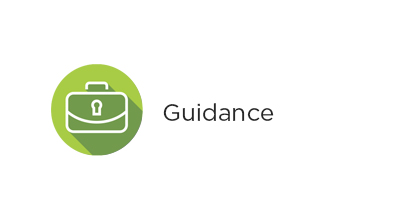
With the adoption of new review engagement standards (CSRE 2400) effective for periods ending on or after December 14, 2017, we wish to share the following article on engagement letters prepared by CPA Quebec.
Have you thought about your engagement letters?
The new CSRE 2400 review engagement standard, which will be effective for periods ending on or after December 14, 2017, will have different implications for each firm, but practitioners should consider it now to prepare properly and avoid surprises during the first engagements performed according to these requirements.
As with the current standard, once the engagement is accepted or continued, CSRE 2400 requires that the practitioner agree the terms of engagement with management (or those charged with governance, as appropriate) before performing the engagement. The terms are then recorded in an engagement letter or other suitable form of written agreement.
CSRE 2400 specifies certain essential terms that must be included in the engagement letter, such as the intended use and distribution of the financial statements. Since the required content of the letter is different from the content required by standard 8100, all firms must review their sample letters according to the new requirements. Therefore, even for a recurring engagement, the practitioner will have to prepare a new agreement with the client for engagements that will be performed based on the CSRE 2400 requirements, i.e., for periods ending on or after December 14, 2017.
Also keep in mind that it is in the interest of management (or those charged with governance, as appropriate) and the practitioner that the engagement letter be sent prior to the performance of the review engagement to avoid any misunderstanding regarding the terms of the engagement. In addition, this procedure serves first as protection for the firm regarding the work to be done because, by signing the letter, the client acknowledges that the scope, objective, and limitations of the engagement are understood. This means that, before the planning stage, practitioners can confirm whether the engagement they will be performing aligns with the client’s expectations and requirements, and, therefore, whether there is a need to reassess the type of engagement to be performed.
Discussing the terms of the engagement with the client can also provide an opportunity for practitioners to inquire about key facts regarding the entity, enabling them to plan the engagement with additional information. In this regard, it is important to note that the new CSRE 2400 standard indicates that the practitioner shall not accept or continue a client relationship or a review engagement in certain circumstances, unless required by laws or regulations. Carrying out the procedures regarding the acceptance and continuance of client relationships or review engagements at the start of the process allows the practitioner to make informed decisions about meeting these criteria and to determine the courses of action to be taken before other important steps of the engagement are performed.
For periods subsequent to the initial application period of CSRE 2400, the practitioner may decide not to send a new engagement letter each period. According to paragraph 34 of CSRE 2400 however, the practitioner will be required to agree to the terms of engagement on an annual basis with management or those charged with governance. The practitioner shall evaluate whether circumstances require the terms of engagement to be revised and whether there is a need to remind management or those charged with governance, as appropriate, of the existing terms of engagement. If there are no factors that would make it appropriate for the terms of the engagement to be revised, the practitioner would document this in the working papers.
In conclusion, it is the practitioner’s responsibility to be properly prepared for this important transition. In this regard, CPA Canada has prepared several resources to facilitate the transition to the new standards:
- a free publication Guide to Review Engagements (CSRE 2400), which provides useful suggestions for the conduct of a review engagement;
- a summary of the key changes set out in CPA Canada’s Audit and Assurance Alert Comparison between CSRE 2400 and the 8000 Series; and
- a practitioner client briefing that you can use with clients to explain what to expect in their review engagements for periods ending on or after December 14, 2017.
Many thanks to CPA Quebec for sharing their guidance with BC members.
Rate this Entry
Current rating: 1 yes votes, 2 no votes

